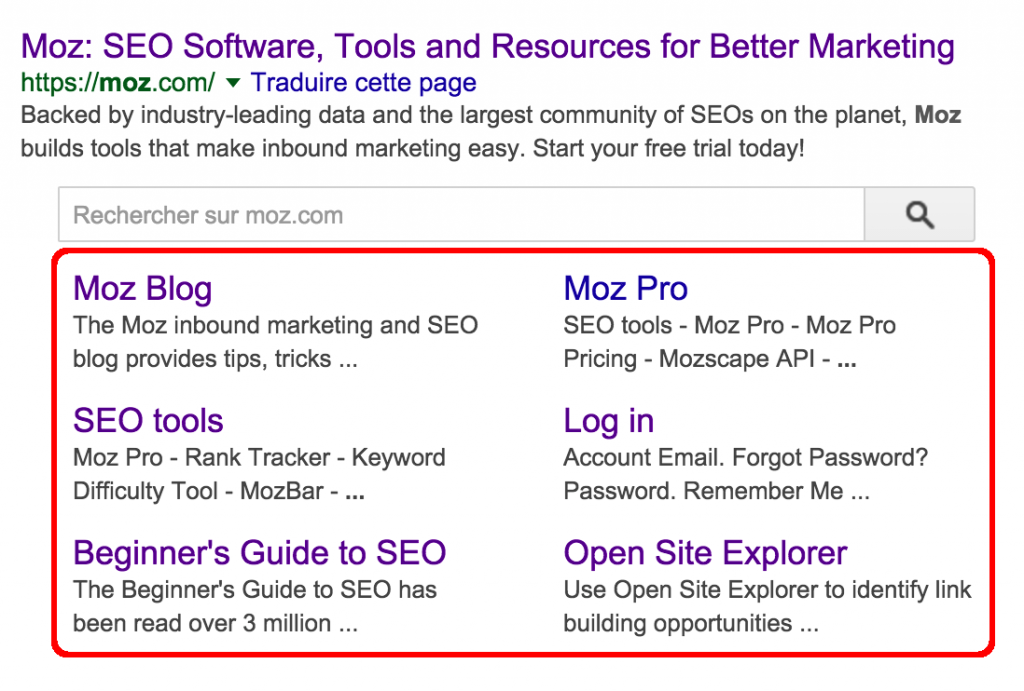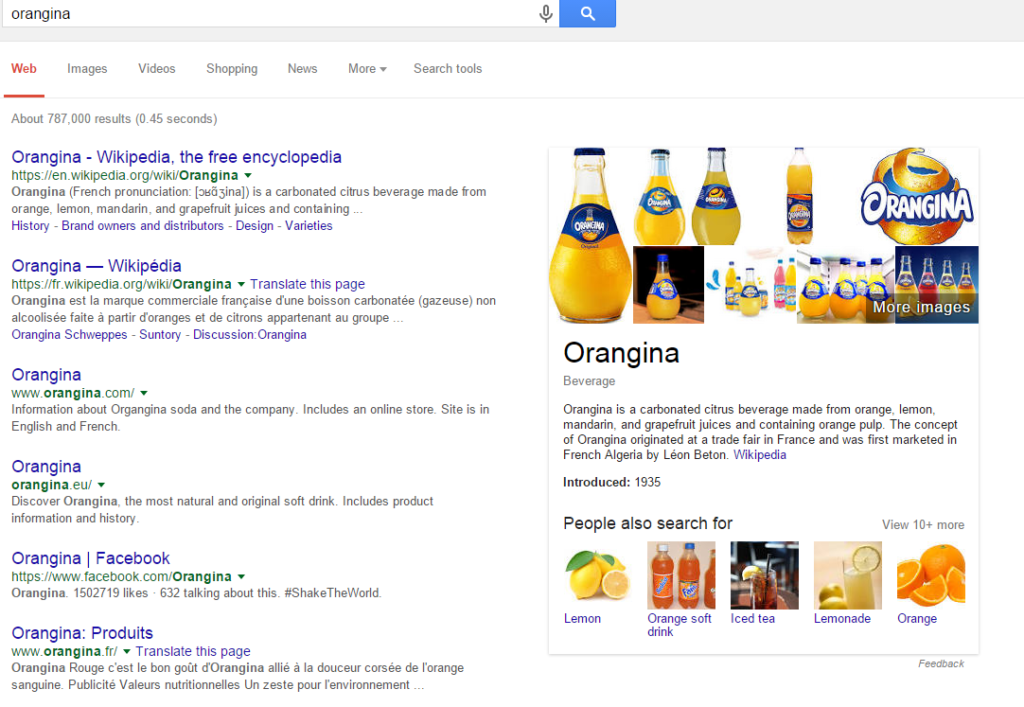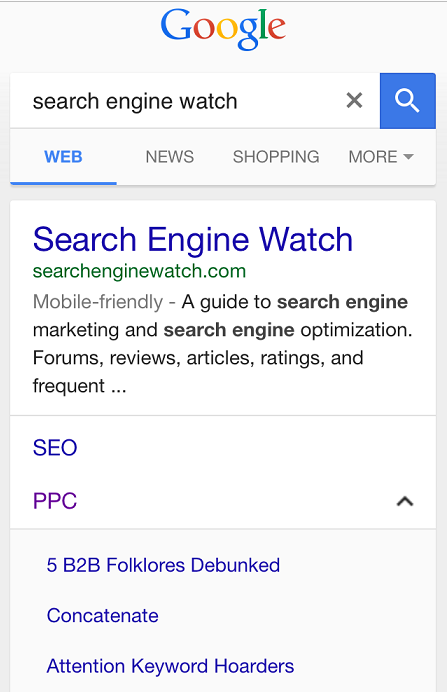Sitelinks refer to the links displayed below some of the Google’s search results. They help users get an easier access to important area of your website like categories and obviously they can help the user to know what the website is going to be about. They offer a better user usability as it shows shortcuts to reach quicker relevant informations.
Many websites consider sitelinks as a reputation enhancer, a way to control a wider areas of the search results pages and a tool to drive targeted audience to your website. This is what makes sitelinks valuable.
What does a sitelink look like?
In the example below, we searched for Moz’ website. Here are the sitelinks displayed:

If you type the same request but with an additional keyword, you might find different suggestions in the sitelinks as it is a branded/navigational search. Google translates your intents of search.
Sitelinks and knowledge graph work on the same basis, offering additional informations to enhance the user experience. Both can be displayed. However, some big brands do not have sitelinks as queries may not be looking for the website brand in itself but for global informations. For example, the French brand Orangina does not have any sitelinks but a knowledge graph.

Google has updated its mobile sitelinks
Google has improved that function on mobile search by expanding sitelinks. You can now get further informations when clicking on a section and get a direct access to recent articles without navigating through the website. Search Engine Watch tried with its own website:

Shree Vaidya, head of SEO at U.K. digital agency Engage Interactive says that:
Google wants its web search experience to be unified across all devices
and add that:
Google isn’t looking to create an app or hardware-dependent artificial intelligence; it’s looking to add that functionality into its core search product, which will make it device agnostic, something all devices can utilize.
This update has clearly been made in order to offer a better user experience on mobile like for Knowledge Graph and Maps. Google wants to avoid any user escape.
Do sitelinks have an impact on your performances?
Google stated that they
only show sitelinks for results when we think they’ll be useful to the user. If the structure of your site doesn’t allow our algorithms to find good sitelinks, or we don’t think that the sitelinks for your site are relevant for the user’s query, we won’t show them.
More than just saving time and bring relevance, sitelinks also:
- cover SERP area
- shorten the conversion funnel
- strengthen brand awareness
- increase CTR
- improve internal pages strength

